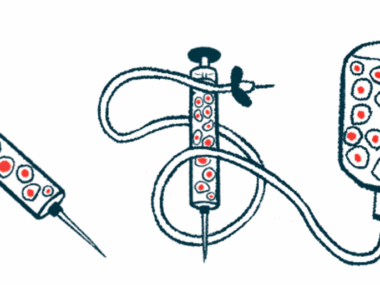Acadia Submits Supplemental New Drug Application for Nuplazid to Treat Dementia-related Psychosis, Hallucinations
Written by |

Acadia Pharmaceuticals announced it has submitted a supplemental new drug application (sNDA) to the U.S. Food and Drug Administration for a new indication for Nuplazid (pimavanserin) in the treatment of hallucinations and delusions associated with dementia-related psychosis.
Dementia affects approximately 8 million people in the U.S. and is expected to grow as the population ages. An estimated 2.4 million of these people experience dementia-related hallucinations and delusion. There is an unmet need for dementia-related psychosis treatments, as no approved option yet exists.
Positive results in three separate clinical trials support the decision to submit the sNDA, including data from the Phase 3 HARMONY study (NCT03325556), in which 351 patients received either 34 mg or 20 mg of Nuplazid per day, or a placebo. Their progress was followed for up to 26 weeks or until a relapse of psychosis occurred.
Nuplazid was well-tolerated and was not associated with cognitive declines over the entire nine-month testing period. Importantly, Nuplazid significantly reduced the risk of relapse of psychosis by 2.8-fold compared to placebo.
Data from a Phase 2 trial in patients with Alzheimer’s disease-related psychosis (NCT02035553) and from a Phase 3 trial investigating its use in Parkinson’s disease psychosis (NCT01174004) further demonstrated Nuplazid’s positive antipsychotic effectiveness.
Nuplazid is a selective serotonin inverse agonist (SSIA) that specifically targets serotonin 5-HT2A receptors. Evidence suggests these receptors play an important role in psychosis, schizophrenia, depression and other neuropsychiatric disorders. Inverse agonists bind to the same receptors as an agonist, but have the opposite pharmacological effect, blocking the activity of the targeted receptors.
In past studies, Nuplazid was shown to lessen the symptoms of Parkinson’s disease-related psychosis, while minimizing the debilitating side effects that many antipsychotics cause.
Those results and others led the FDA to approve Nuplazid to treat hallucinations and delusions associated with psychosis experienced by some people with Parkinson’s disease under the FDA’s breakthrough therapy designation, an expedited FDA review program for medications that show substantial improvement over existing treatments in early clinical data.
The new application seeks to expand Nuplazid’s use beyond Parkinson’s disease.
“This is an important step forward for the approximately 2.4 million people in the U.S. who suffer from dementia-related hallucinations and delusions, representing a large unmet need with currently no approved treatment options,” Steve Davis, ACADIA’s CEO, said in a press release. “Our pivotal HARMONY study showed a meaningful reduction of the symptoms and stabilization of psychosis and a nearly three-fold reduction in the risk of relapse of psychosis for patients continuing treatment on pimavanserin compared to placebo. We look forward to working with the FDA as it reviews our submission.”
Should it win supplementary approval, Nuplazid would be the first medication approved for hallucinations and delusions associated with dementia-related psychosis, and would be the second indication for Nuplazid.





